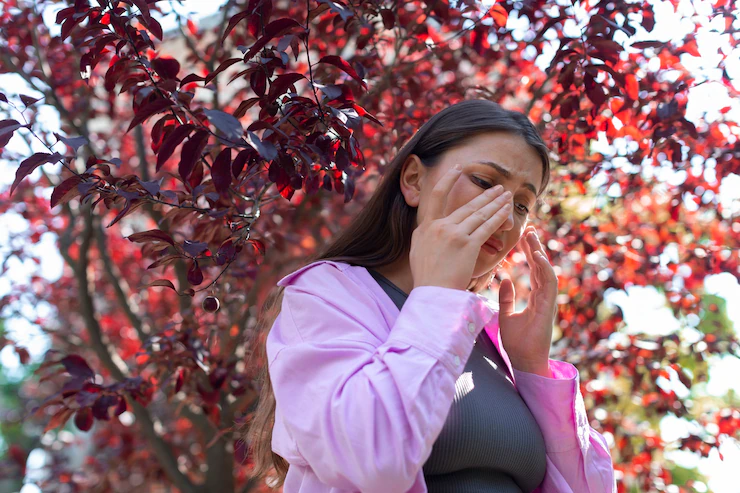Allergies are a common health concern that affects people worldwide, including women in South Africa. Allergic reactions occur when the immune system overreacts to a normally harmless substance, such as pollen, dust mites, certain foods, or pet dander. These reactions can range from mild discomfort to severe and potentially life-threatening conditions. To help South African women prevent and manage allergies effectively, it is crucial to understand the causes, symptoms, and strategies for prevention and treatment.
Common Allergens in South Africa:
South Africa’s diverse climate and landscape contribute to a wide array of allergens found across the country. Here are some common allergens to be aware of:
- Pollen: South Africa is home to various plants and trees that release pollen, leading to seasonal allergies. Common culprits include grasses, trees like the African juniper and olive, and flowering plants like ragweed and daisies.
- Dust Mites: These microscopic creatures thrive in warm and humid environments. They are often found in bedding, upholstery, and carpets, making them a significant cause of indoor allergies.
- Mold: South Africa’s humid coastal regions provide a suitable environment for mold growth. Mold spores can trigger allergic reactions and are commonly found in damp areas such as bathrooms, basements, and kitchens.
- Food Allergens: Certain foods, such as peanuts, tree nuts, seafood, eggs, and dairy products, can cause allergic reactions in susceptible individuals. It is important for South African women to be aware of these common food allergens and read food labels carefully.
Prevention Strategies:
- Identify Triggers: It is essential to determine the specific allergens that trigger your symptoms. If you suspect you have allergies, consult with a healthcare professional who can perform tests to identify the allergens affecting you. Once identified, take steps to minimize exposure to these triggers.
- Maintain Clean Indoor Environments: Regularly clean and vacuum your home to reduce dust mites and pet dander. Use allergen-proof covers for mattresses and pillows. Keep humidity levels low to prevent mold growth.
- Stay Informed About Pollen Levels: Monitor pollen forecasts and try to stay indoors when pollen counts are high, especially during spring and summer. Keep windows closed and use air purifiers to improve indoor air quality.
- Practice Good Hygiene: Wash your hands frequently, especially before meals, to reduce the risk of coming into contact with allergens. Shower and change clothes after spending time outdoors to remove pollen from your body and prevent it from spreading indoors.
- Dietary Considerations: If you have food allergies, read food labels carefully and avoid consuming foods that may trigger an allergic reaction. Be cautious when dining out and inform restaurant staff about your allergies to ensure safe food preparation.
Managing Allergy Symptoms:
- Over-the-Counter Medications: Antihistamines, nasal sprays, and eye drops can provide temporary relief from allergy symptoms. However, it is important to consult with a healthcare professional before starting any medication, as they can recommend the most suitable options based on your specific needs.
- Immunotherapy: In cases of severe allergies or when symptoms are not adequately controlled with medications, immunotherapy may be recommended. This treatment involves gradually exposing the body to small amounts of the allergen to build tolerance over time.
- Allergy Action Plan: Work with your healthcare provider to develop an allergy action plan. This plan should outline the steps to take when symptoms worsen or when you experience an allergic reaction. It may include emergency contact information, prescribed medications, and self-care measures.
- Supportive Care: Implement self-care practices to manage allergy symptoms. This may include using saline nasal rinses to alleviate congestion, applying cold compresses to relieve itchiness, and avoiding known triggers as much as possible.
- Seek Professional Advice: If allergies significantly impact your daily life or if you experience severe allergic reactions, seek medical advice promptly. An allergist or immunologist can provide a comprehensive evaluation, accurate diagnosis, and personalized treatment options.
Conclusion:
Preventing and managing allergies is crucial for South African women’s health and overall well-being. By understanding common allergens, implementing prevention strategies, and seeking appropriate treatment, women can reduce the impact of allergies on their lives. It is important to work closely with healthcare professionals to develop personalized plans and to stay informed about the latest advancements in allergy management. With proper care and attention, women in South Africa can lead healthier lives and minimize the impact of allergies on their daily activities.










